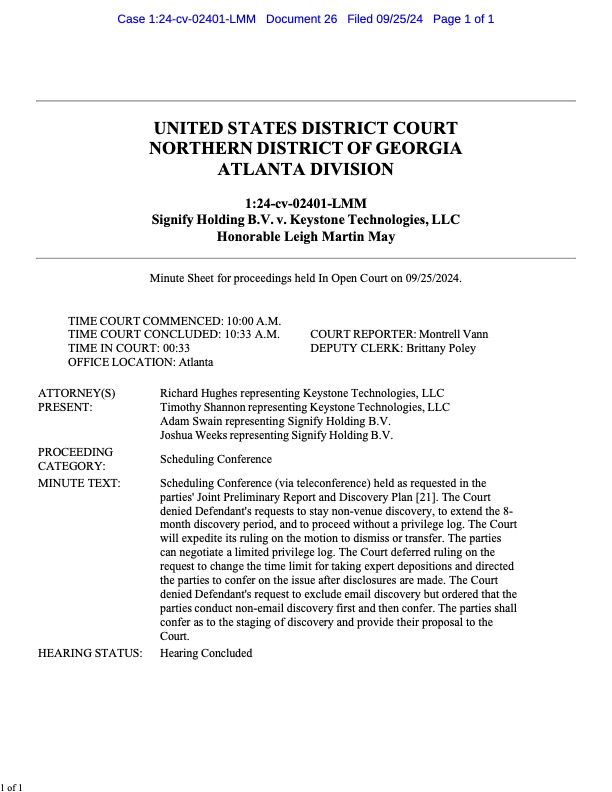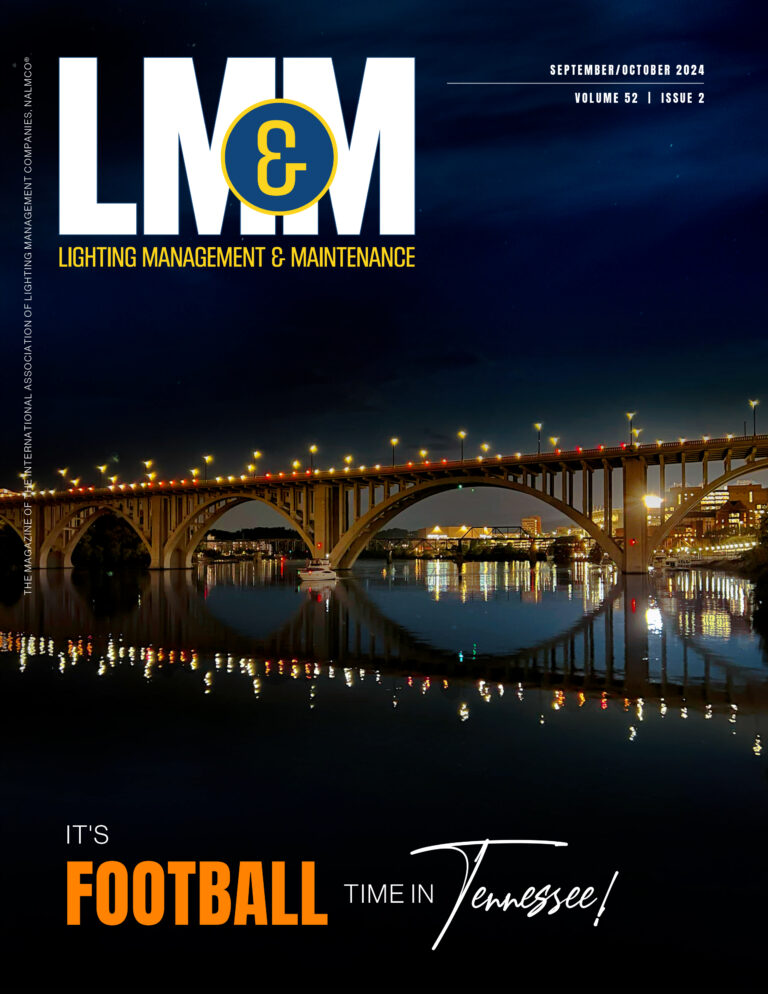Signify vs. Keystone Conference Call
On September 25, 2024, the U.S. District Court for the Northern District of Georgia, Atlanta Division, held a scheduling conference in the case of Signify Holding B.V. v. Keystone Technologies, LLC. The session, overseen by Judge Leigh Martin May, lasted 33 minutes. The hearing, conducted via teleconference, focused on several discovery-related matters and case management procedures.
The legal dispute between Signify and Keystone began in 2019 when Signify first raised concerns about potential patent infringements. Over the following years, Signify continued efforts to resolve the issue with Keystone, but no agreement was reached. This eventually led Signify to file a formal complaint.
Attorneys in Attendance
Signify Holding B.V. was represented by attorneys Adam Swain and Joshua Weeks. Keystone Technologies, LLC had Richard Hughes and Timothy Shannon on their legal team. The conference addressed motions regarding discovery timelines, privilege log requirements, and email discovery.
Key Court Rulings
During the proceedings, the Court made important decisions based on the parties’ Joint Preliminary Report and Discovery Plan. Several requests raised by Keystone Technologies were denied.
- Non-Venue Discovery: Keystone Technologies requested a stay on non-venue discovery. The Court rejected this request, allowing discovery to move forward without delay.
- Discovery Period Extension: Keystone Technologies also asked for an extension of the 8-month discovery period. This motion was denied, keeping the discovery timeline unchanged.
- Privilege Log: The Court ruled that a privilege log is required. However, it allowed both parties to negotiate a limited version to ease administrative burdens.
- Expert Depositions: The Court deferred a ruling on the time limit for expert depositions. It instructed the parties to confer on this matter after disclosures have been made.
- Email Discovery: Keystone Technologies sought to exclude email discovery. The Court denied this request but ordered that non-email discovery take place first. Both parties must confer to schedule email discovery afterward.
Expedited Ruling on Motion to Dismiss or Transfer
The Court will expedite its ruling on Keystone Technologies’ motion to dismiss or transfer the case. This decision could impact the case’s venue or its continuation in the current court.
Next Steps
The Court instructed both parties to confer on how discovery should be staged. They will submit their proposal to the Court for approval.
Conclusion
The scheduling conference brought critical decisions in the ongoing case between Signify Holding B.V. and Keystone Technologies, LLC. The Court denied several key motions from Keystone, allowing discovery to proceed as planned. Both sides must now agree on discovery stages and timelines while awaiting the expedited ruling on the motion to dismiss or transfer.
Read the report below.





